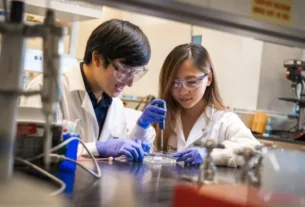Sports
How much does George Pickens make a year?
George Pickens, a standout wide receiver for the Pittsburgh Steelers, has quickly gained attention in the NFL for his athletic prowess and remarkable playmaking abilities. Drafted in the second round of the 2022 NFL Draft, Pickens secured a lucrative rookie contract. This article delves into how much George Pickens earns annually, examining his contract structure, […]
Health
What Are the Four Concepts of Health?
Health is a multi-dimensional concept that extends beyond the mere absence of illness. Understanding health requires exploring its various dimensions and frameworks, which shape how individuals, societies, and professionals view well-being. The four widely recognized concepts of health—physical, mental, social, and spiritual health—offer a comprehensive understanding of this complex phenomenon. 1. Physical Health Physical health […]
What Are the 7 Factors or Determinants of Health?
Health is a dynamic and multi-faceted concept influenced by various factors. The World Health Organization (WHO) defines health as “a state of complete physical, mental, and social well-being, not merely the absence of disease or infirmity.” Achieving this state is determined by a combination of individual, social, and environmental elements. This article delves into the […]
Economy
What is known as an economy?
The term “economy” is often encountered in daily conversations, news reports, and academic discussions, but what does it truly entail? At its core, an economy refers to the system by which goods and services are produced, distributed, and consumed in a society or country. It encompasses everything from the smallest individual transactions to large-scale industrial […]
What is a Simple Definition of Economy?
The economy is the system by which goods and services are produced, distributed, and consumed within a society. It includes all activities related to the production, consumption, and exchange of resources, aiming to meet the needs and desires of people and businesses. An economy involves everyone in society, from individuals and families to businesses and […]
What is the Net Worth of Tata Group?
Tata Group, a global conglomerate founded in 1868 by Jamsetji Tata, is one of the largest and most influential business enterprises in the world. Headquartered in Mumbai, India, the group spans a diverse range of industries, from steel, automotive, and information technology to telecommunications, consumer products, and hospitality. With its vast portfolio, the net worth […]
-
AlbertoWOP commented on Whitney Houston: The Rise and Legacy of a Musical Icon: Burberry — это известный британский бренд, предста
-
Robertsnult commented on Melania Trump’s Early Life: From Slovenia to International Fame: На этом сайте вы можете приобрести онлайн мобильны
-
Robertsnult commented on How Much Does Jesús Luzardo Make? A Detailed Look at His MLB Earnings and Career Trajectory: На этом сайте у вас есть возможность приобрести ви
-
Robertsnult commented on What is a bomb cyclone?: На данном сайте у вас есть возможность приобрести
-
Robertsnult commented on What Does Dennis Rodman Do Now?: На этом сайте вы можете приобрести виртуальные тел




































